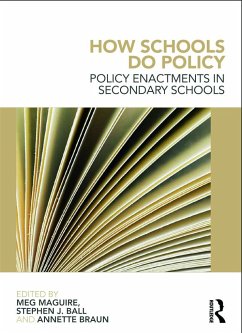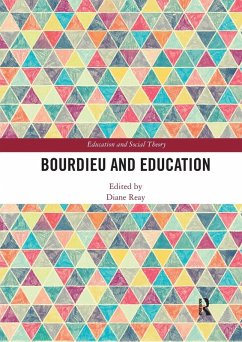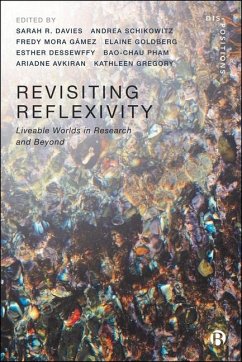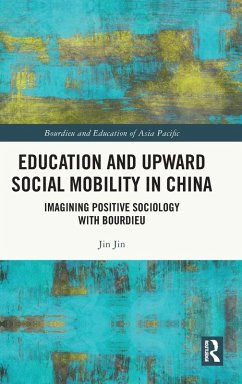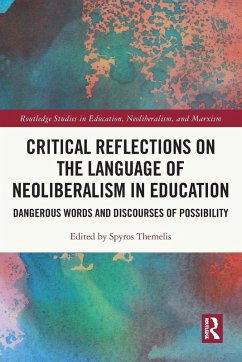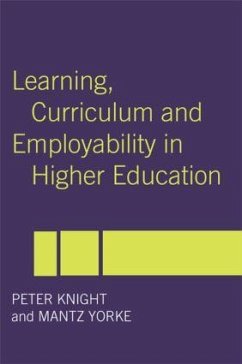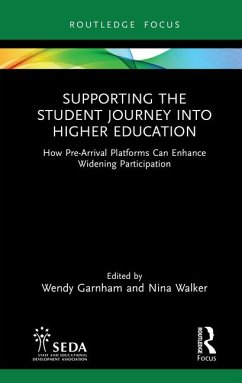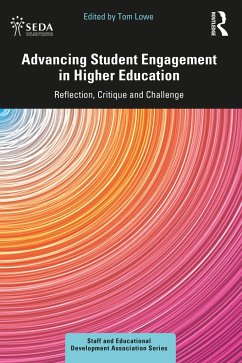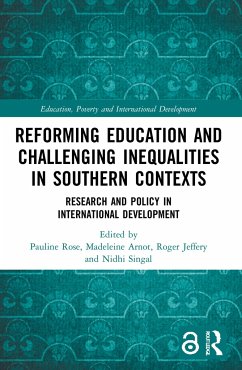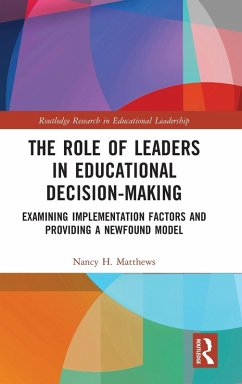Broschiertes Buch
Revisiting Actor-Network Theory in Education
Versandkostenfrei!
Versandfertig in 1-2 Wochen
Weitere Ausgaben:

PAYBACK Punkte
29 °P sammeln!




This volume contains papers that address educational issues while showing creative theoretical and methodological possibilities for ANT studies in education.
Tara Fenwick is Emeritus Professor at the University of Stirling, UK, having recently retired from her post as Professor of Education and Director of ProPEL, an international network for research in professional practice, education and learning. Her research focuses on understanding learning and practice in the changing complexities of professional work, with particular interest in actor-network and complexity theories to understand the sociomaterial dimensions of practice. Her most recent book is Professional Responsibility and Professionalism: A Sociomaterial Examination (2016), and selected others include Reconceptualising Professional Learning (with Nerland, 2014), Governing Knowledge: Comparison, Knowledge-Based Technologies and Expertise in the Regulation of Education (with Ozga and Mangez, 2014), Emerging Approaches to Educational Research: Tracing the Socio-Material (with Edwards and Sawchuk, 2011) and Actor Network Theory in Education (with Edwards, 2010). Richard Edwards is Emeritus Professor in the Faculty of Social Sciences at the University of Stirling, UK, where he was previously Professor and Head of the School of Education. He has researched and written extensively on lifelong learning and educational theory, with particular interests in poststructuralism and actor-network theory. His research projects have been funded by a range of organisations, including the British Academy, Economic and Social Research Council and the European Union and Wellcome Trust. His research projects have focused on areas such as literacy practices in colleges, curriculum making in colleges and schools, the hidden curriculum of code in digital education and learning through citizen science. His books include Postmodernism and Education (with Usher, 1994), Changing Places (1997), Globalisation and Pedagogy (with Usher, 2000) and Actor-Network Theory in Education (with Fenwick, 2010).
Produktdetails
- Education and Social Theory
- Verlag: Taylor & Francis Ltd
- Seitenzahl: 174
- Erscheinungstermin: 22. März 2019
- Englisch
- Abmessung: 246mm x 174mm x 10mm
- Gewicht: 324g
- ISBN-13: 9780367264680
- ISBN-10: 0367264684
- Artikelnr.: 56972130
Herstellerkennzeichnung
Libri GmbH
Europaallee 1
36244 Bad Hersfeld
gpsr@libri.de
Für dieses Produkt wurde noch keine Bewertung abgegeben. Wir würden uns sehr freuen, wenn du die erste Bewertung schreibst!
Eine Bewertung schreiben
Eine Bewertung schreiben
Andere Kunden interessierten sich für





